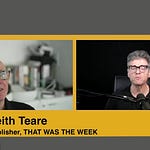Last month, we were in western Virginia talking to the pioneering regenerative farmer Joel Salatin about how American can fix itself one bite at a time. Today we are on the other coast, in western Oregon, talking to another regenerative farmer, Mimi Casteel. In contrast with Salatin’s Polyface Farm, Casteel’s beautiful Hope Well vineyard focuses on the production of wine. And yet, as Casteel explains, she and Salatin share a faith in the regenerative role of the soil in reinventing American agriculture. This is the first part of a two part conversation with Casteel. Next week, in a KEEN ON America interview, she talks more expansively about her love of American nature and her responsibility, as a citizen, to pass it on to future generations of Americans.
Mimi is the daughter of Ted Casteel and Pat Dudley, co-founders of Bethel Heights Vineyard. Growing up working in the vineyard and winery, Mimi gained such an appreciation for the industry that she promptly left home after high school. Armed with a BA in History and Classics from Tulane University, Mimi spent the next year working in various National Forests across the west. Her adventures fueled her passion for studying botany, forestry, and ecology. Mimi earned her MS from Oregon State University in Forest Science, and spent the next several years working as a botanist and ecologist for the Forest Service, living in the backcountry. She could never get past the longing for the vineyard, and working with the vines. Mimi returned to Bethel Heights in 2005, along with her cousin and childhood best friend Ben to take the helm as second generation winegrowers and owners. In 2015 Mimi left Bethel Heights and began her Hope Well journey, building an island of biodiversity and resilience on her own 80-acre farm, growing grapes for others to support the farm, and making wines to give a voice to the process of regeneration. Firmly convinced that moving from conventional to regenerative agriculture on working lands is the most powerful tool humanity has to reverse climate change, the mission of Hope Well has been to help spread the word by example, one farm at a time. 2020 changed everything. In 2020 the climate delivered a clear personal message that there is no time left for a one-farm-at-a-time strategy to address the climate crisis. In 2021 Mimi made the hard decision to move Hope Well, the wine, the sheep, the chickens, the children, the philosophy, the entire ethos, to a much smaller, integrated farm that allows for the time and personal capacity to do the work that needs to be done now, building strategies and networks that can transform agriculture on a global scale while there is still time.
Named as one of the "100 most connected men" by GQ magazine, Andrew Keen is amongst the world's best known broadcasters and commentators. In addition to presenting KEEN ON, he is the host of the long-running How To Fix Democracy show. He is also the author of four prescient books about digital technology: CULT OF THE AMATEUR, DIGITAL VERTIGO, THE INTERNET IS NOT THE ANSWER and HOW TO FIX THE FUTURE. Andrew lives in San Francisco, is married to Cassandra Knight, Google's VP of Litigation & Discovery, and has two grown children.













Share this post